P RAISE FOR S ECRET K EEPING
A timely book! John Howard Prin takes the reader on a wonderfully exciting journey of self-exploration and the development of personal insight. He provides practical methods to free ourselves of our hidden secrets so that ultimately we can be at peace with who we are even when no one else is around.
Patrick DeChello, PhD,
author of Understanding Self-Injury
John Howard Prins Secret Keeping is the first book Ive read that explores the origins and essence of secretshow they help us and when they hurt us. Using examples from his own life and the lives of othersfrom public figures to the guy next doorPrin skillfully weaves a new quilt of understanding of the Jekyll and Hyde in each of us. He also provides new and necessary hope with a series of practical exercises we can use to transform ourselves and our world.
Terrence Daryl Shulman, JD, MSW, CAC,
author of Something for Nothing
Recovery means escaping from the labyrinth of ones own lies. John Prins book on keeping secrets lays bare the essential connection between image management and a secret life. A useful, well-written book by someone who has been there.
Patrick J. Carnes, PhD, author of Out of the Shadows
SECRET
KEEPING
SECRET
KEEPING
Overcoming Hidden Habits
and Addictions
JOHN HOWARD PRIN

N EW W ORLD L IBRARY
N OVATO , C ALIFORNIA

New World Library
14 Pamaron Way
Novato, California 94949
Copyright 2006 by John Howard Prin
All rights reserved. This book may not be reproduced in whole or in part, stored in a retrieval system, or transmitted in any form or by any meanselectronic, mechanical, or otherwithout written permission from the publisher, except by a reviewer, who may quote brief passages in a review.
The material in this book is intended for education. It is not meant to take the place of diagnosis and treatment by a qualified medical practitioner or therapist. No express or implied guarantee about the effects of using the recommendations can be given, nor liability taken.
Case histories of individuals may be composites of two or more actual people, and names have been changed to respect the privacy of those persons.
Secret Keepers and Secret Keepingare registered trademarks of John Howard Prin. The Four Squares of Life is a trademark of John Howard Prin.
Brain diagram on page 12 by Robert Rath (www.robertrath.net) courtesy of Deidre Combs.
Text design and typography by Tona Pearce Myers
Library of Congress Cataloging-in-Publication Data
Prin, John Howard.
Secret keeping : overcoming hidden habits and addictions / by John Howard Prin.
p. cm.
Includes bibliographical references and index.
ISBN-13: 978-1-57731-534-6 (pbk. : alk. paper)
1. SecrecyPsychological aspects. 2. Self-defeating behavior. 3. Compulsive behavior.
I. Title.
RC455.4.S43P75 2006
616.8584dc2
2006012255
First printing, September 2006
ISBN-10: 1-57731-534-0
ISBN-13: 978-1-57731-534-6
Printed in Canada on acid-free, partially recycled paper
Distributed by Publishers Group West
 New World Library is a proud member of the Green Press Initiative.
New World Library is a proud member of the Green Press Initiative.
10 9 8 7 6 5 4 3 2 1
To Susie, whose loving patience and
support have never been a secret
CONTENTS
PART 1.
T HE S ELF D IVIDED :
Problems and Consequences
PART 2.
T HE J OURNEY T OWARD W HOLENESS :
Solutions and Rewards
E VERYONE KEEPS SECRETS .
Some people who keep secrets do not feel guilty, while others do.
Its the second kind of people who keep secrets, those who feel guilt or shame, that Secret Keeping: Overcoming Hidden Habits and Addictions is meant for. In my career as a therapist and counselor, Ive come to call these kinds of people Secret Keepers. A Secret Keeper can be anyone from a housewife hiding vodka bottles from her family to a compulsive gambler, a food addict, a cybersex fanatic, or anyone who is secretly leading a double life.
Sometimes people just daydream about a taboo world, not acting on their fantasies. This is secret keeping in its mildest form. If this describes you, relax. This form is passive, benignhardly a problem. Although this book will help you, youre not in major trouble. Think of yourself as a human being like everybody else. We all dream of the forbidden, so be easy on yourself.
Other Secret Keepers go beyond musing about their fantasies to living them out. They willingly take risks and consciously push boundaries that move them toward something that is, or will become, a problem for them and for others. This is secret keeping in its active form. Its dynamic, volatileand highly problematic. Individuals who engage in this behavior stretch ethical, moral, and relational boundaries in search of something that is missing in their lives, often to escape some pain or hurt. If you think you fit this category, this book will help you to climb out of the dark hole youve dug yourself into. It will urge you to rethink your reasons for secret keeping and prompt you to examine your options, including seeking outside help. It will open the door to hopethe hope of living freely without deception, lies, alibis, guilt, or shame.
Still other kinds of people act outside accepted ethical, moral, and relational limits; they break the law. They take great risks and commit crimes that endanger or damage themselves, others, and society. This is secret keeping in its criminal or psychotic form. Its malignant, destructiveand highly injurious. Two types of individuals fit in this category: the decent, regular sort of person whose secrecy makes them cross the line into crime or psychosis, and the hardened, antisocial career criminal such as a serial rapist or murderer. This book will deal only marginally with the latter type.
Whats essential to realize is that secret keeping, in all of its forms, involves some degree of criminal thinking. And almost any functioning member of society can think like a criminal at times. How about the millions of everyday citizens who drive over the speed limit and whodespite their awareness that theyre breaking the lawhope they never get caught? The likelihood for any Secret Keeper of slipping down the slippery slope from passive to dynamic to malignant always exists.
As you read this book, you will find that it describes people with good hearts and curious minds who are seeking, many times inappropriately, wholeness and fulfillment. It tells stories of everyday working adults with families, homes, jobs, and responsibilities who are trapped in the dynamic stages of stealing hours from their public lives. The risks, thrills, and taboo nature of their habits prove too strong to resist. By participating secretly in hidden activities that are shameful or stigmatizing, they risk their reputations. If anybody knew about their secret lives, their good standing in the community would be destroyedand they are fully aware of that.
This books aim is to prevent such disasters. Because chronic Secret Keepers dual identities are in conflict, they are stressed-out people. Their parallel worlds never come together. Their forays into unhealthy habits develop into lifestyles that erode physical, mental, emotional, and spiritual well-being. A key purpose of this book is to help readers understand the problem and to see the merit of finding the solutions. It offers ways to stop living a


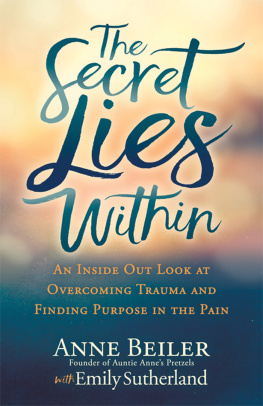

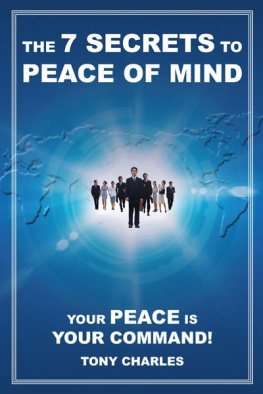
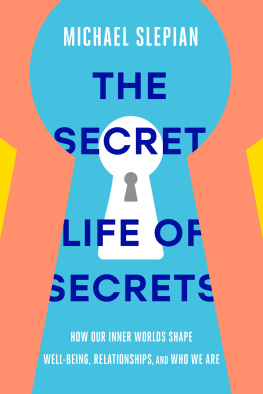
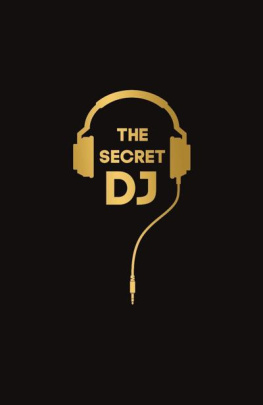



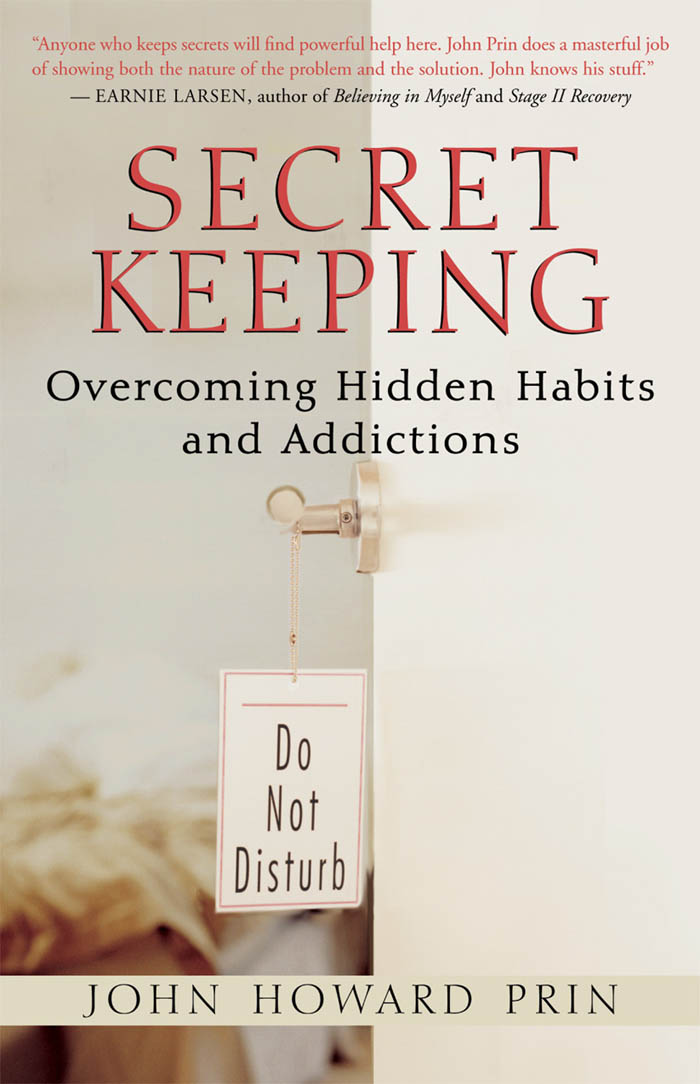

 New World Library is a proud member of the Green Press Initiative.
New World Library is a proud member of the Green Press Initiative.